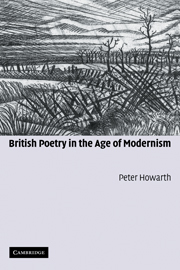Introduction: the poetry wars
Published online by Cambridge University Press: 20 October 2009
Summary
Among its lists of publishing opportunities, grants and fellowships, the 2003 edition of The Writer's Handbook offers a solemn warning for today's aspiring poet:
It would be great in 2003 to report an end to the poetry wars. Or indeed the end of any kind of war. But those disagreements on poetic style and metrical direction which began so long ago are still very much around. As ever, the battle is between the insiders and the outsiders, the left vs. the right, with both sides convinced they are the ones who own the true poetic grail. The insiders are the ones who write what new readers often imagine real poetry to be. They are clear, crisp and immediately comprehensible. They represent the Georgian line of narrative in verse that runs from Hardy through Betjeman and Larkin to Tony Harrison, Andrew Motion, Wendy Cope, Carol Ann Duffy, Sean O'Brien and the other bestsellers of the present day. The outsiders are the experimenters, the chancers, those of innovative texts. They are the ones who embraced the difficult modernism of Eliot and Pound and then took poetry off to those rarefied places where, apparently, the public never bother to go. They made it new. Wallace Stevens was central. John Ashbery is his heir. Over here Edwin Morgan, Roy Fisher, Tom Leonard, Allen Fisher and others continue the process. Poetry should be different. It should generate sparks when you engage with it. Comprehension comes later.
- Type
- Chapter
- Information
- British Poetry in the Age of Modernism , pp. 1 - 14Publisher: Cambridge University PressPrint publication year: 2005



